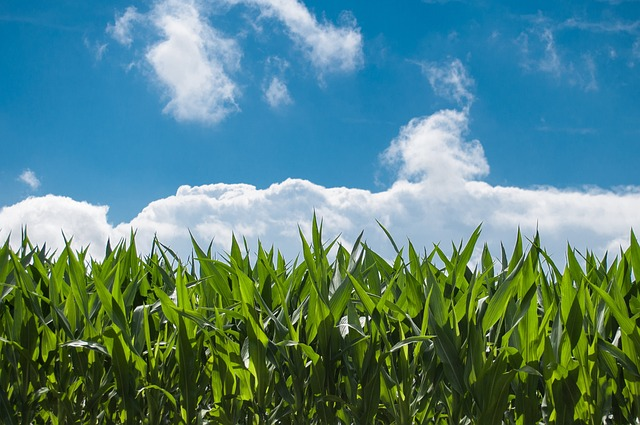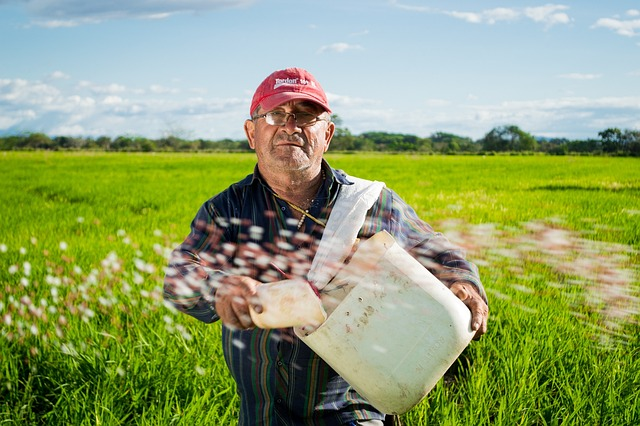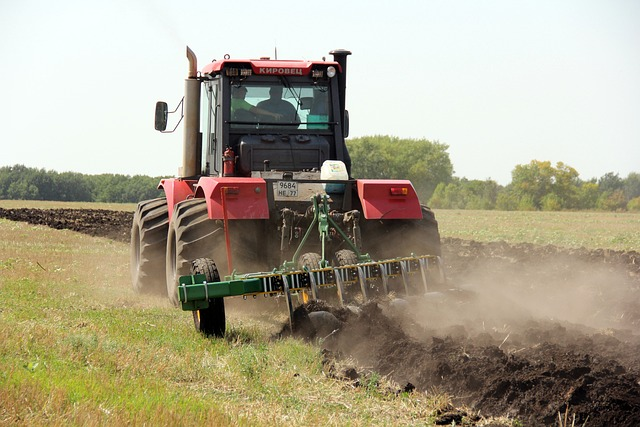What is a Small Business Farm Grant?
Small business farm grants, or simply farm grants, are financial assistance programs designed to support startup and existing agricultural business enterprises. These grants aim to help socially disadvantaged farmers enhance their operations, invest in new technologies, and improve sustainability.
Farm grants can come from various sources, including government agencies, nonprofit organizations, and private companies. They typically require applicants to submit detailed proposals outlining their project plans, expected outcomes, and budget requirements.
Successful applicants receive funding to purchase equipment, expand infrastructure, implement sustainable practices, or conduct research and development. Farmers who receive farm grants do not have to repay the funds.
How do Farm Grants work?
Farm grants provide financial and technical assistance to socially disadvantaged farmers to support various aspects of their agricultural operations. Grant funding is typically awarded to help farmers invest in equipment, infrastructure, or sustainable practices.
Farm grants operate differently from farm loan programs. Unlike loans, which must be repaid with interest, grants do not require repayment. Thus, they serve as vital farm debt relief tools for many farmers struggling financially.
Farmers must apply through specific programs or organizations offering such financial support to access farm grants. Each grant program has its own set of criteria and requirements that farmers must meet to qualify for funding.
One key aspect of farm grants is that they aim to promote innovation and sustainability in the agricultural sector. By providing financial assistance, these grants enable farmers to implement new technologies, develop energy efficiency improvements, and enhance their overall productivity.
There are several types of farm grant programs.
Private Farm Grants: These grants, often provided by private foundations or corporations, offer funding for various agricultural projects such as sustainable farming practices or equipment upgrades.
Federal Grant Programs: Several federal government organizations offer grant programs that provide financial assistance to farmers to support various aspects of their operations, such as equipment purchases, infrastructure improvements, and sustainable practices.
Local Grant Programs: In addition to federal farm grants, some state and local government agencies also provide community-supported agriculture programs and grants to support agricultural needs. Farm grants from state and local governments provide financial support to farmers for various agricultural projects and initiatives to improve productivity, sustainability, and rural development.
Nonprofit Organizations: Nonprofit organizations often provide farm grants to support agricultural development and production.
Who is eligible to receive a Farm Grant?
Individuals must meet specific criteria to be eligible for farm or farmer grants. These grants typically cater to those involved in agriculture and related activities. Farm grant programs are designed to support farmers facing financial challenges.
Farmers seeking these grants should demonstrate a genuine need for financial assistance to address their agricultural needs. These grants often aim to provide support beyond what traditional funding opportunities offer.
Farm grant applications usually require detailed information about the farm’s operations, including its size, location, and the types of crops or livestock it grows. Applicants may also need to outline their plans for using the grant funds and how they will benefit their farm.
What are the best Farm Grants available?
Here are some of the most sought-after farm grants.
Specialty Crop Block Grant
The Specialty Crop Block Grant is a program provided by the U.S. Department of Agriculture (USDA) that provides funding for projects that enhance the competitiveness of specialty crops, such as fruits, vegetables, tree nuts, and nursery crops. This grant aims to support initiatives that promote the growth and sustainability of specialty crop industries. To apply for the Specialty Crop Block Grant, interested individuals or organizations can visit the USDA website for detailed information on eligibility requirements, application deadlines, and the application process.
Farmers Market Promotion Program
The Farmers Market Promotion Program supports farmers by providing resources to promote and sell products at local markets, expanding their customer base. It also boosts the success of farmers markets nationwide. Eligible farmers must produce specialty crops or agricultural products, commit to selling at markets, and demonstrate how program funding will help achieve their goals.
Renewable Energy Systems & Energy Improvement Grants
Farmers can benefit from Renewable Energy Systems & Energy Improvement Grants, which provide funding to help them implement sustainable energy solutions on their farms. These grants can support the installation of solar panels, wind turbines, energy-efficient lighting, and other renewable energy technologies.
Farmers can reduce their reliance on traditional energy sources, lower operating costs, and decrease their environmental impact by utilizing these grants. This initiative promotes sustainability and helps farmers improve their overall energy efficiency and resilience.
Value-Added Producer Grant
The USDA Value-Added Producer Grant (VAPG) program offers funding to agricultural producers who want to enhance their businesses by adding value to their products. Interested producers must submit a comprehensive application detailing their project, including a business plan, marketing strategy, and budget.
The application process is competitive, with awards for projects showing economic impact and innovation potential in agriculture. Thorough research on program requirements, seeking assistance from USDA representatives, and submitting a well-prepared application are crucial steps to improving the chances of receiving a VAPG.
Sustainable Agriculture Research and Education (SARE) Grants
Sustainable Agriculture Research and Education (SARE) Grants fund projects that enhance sustainable farming practices. These grants support research, education, and outreach efforts to improve agriculture’s environmental, economic, and social aspects.
Farmers, researchers, educators, and community groups can apply by submitting detailed proposals outlining project goals and methods. A panel of experts reviews proposals for impact and feasibility before awarding funding. SARE Grants are vital for advancing sustainable agriculture and environmental stewardship.
Sky High Farm Grants
Sky High Farm Grants provide funding for sustainable agriculture projects to improve food access and support local communities. To apply, interested individuals or organizations can visit the Sky High Farm website and fill out the application form detailing their project proposal, budget, and expected outcomes. Successful applicants will receive financial support to implement their sustainable agriculture initiatives and make a positive impact on the environment and community.
Fund-a-Farmer Grants
Fund-a-Farmer Grants provide financial support to sustainable farmers across the country. These grants aim to help farmers implement environmentally friendly practices, improve animal welfare, and enhance farm productivity.
By awarding funds to deserving farmers, the program promotes sustainable agriculture and supports the growth of local food systems. Farmers can access resources through Fund-a-Farmer Grants to make positive changes on their farms and contribute to a more resilient and healthy food system.
The FruitGuys Community Fund
The FruitGuys Community Fund supports small farms through grants to improve sustainability and animal welfare. Farmers can apply for funding to implement projects like pasture-based systems, pollinator habitats, or renewable energy.
A panel of experts reviews applications, and grants typically range from $1,000 to $5,000. Farmers must submit a detailed proposal outlining their project goals, budget, and expected outcomes to apply. Visit The FruitGuys website for more information on how to apply.
Young Farmer Grant Program
The Young Farmer Grant Program provides financial support to young farmers looking to start or expand their agricultural operations. To apply, interested individuals must submit a detailed proposal outlining their farming goals, plans for sustainability, and how the grant funds will be utilized.
The application process typically involves submitting an online application form and supporting documents such as a business plan, budget, and references. Successful applicants are then selected based on the strength of their proposals.
Beginning Farmer and Rancher Development Program
The Beginning Farmer and Rancher Development Program is a USDA initiative that provides grants to support new farmers and ranchers in developing their skills and businesses. To apply, interested individuals or organizations can visit the USDA website to access the application forms and guidelines. The application process typically involves submitting a detailed proposal outlining the project, its goals, and how the grant funds will be used to benefit the beginning farmer or rancher.
Patrick Leahy Farm to School Grant Program
The Patrick Leahy Farm to School Grant Program provides funding for schools to incorporate local food into their meal programs, fostering connections between students and local farmers. To apply, schools must submit a proposal outlining how they plan to source local produce and engage students in learning about agriculture. The application process typically opens in the spring, with grants awarded to successful applicants to support farm-to-school initiatives.
Young Farmer Grant Program
The Young Farmer Grant Program provides financial support to individuals aged 18-35 starting or expanding their farming operations. To apply, applicants must submit a detailed proposal outlining their business plan, goals, and how the grant funds will be utilized.
Additionally, applicants may need to provide financial statements, references, and any relevant certifications. The application process typically involves an online submission followed by a review by a selection committee.
What are the benefits of Farm Grants?
Farm grants provide essential financial support to farmers, helping them invest in equipment, technology, and infrastructure upgrades. This funding can improve farmers’ productivity, sustainability, and overall profitability. Farm grants can also support research and development in agriculture, leading to innovation and advancements in farming practices. Overall, farm grants play a crucial role in supporting farmers and the agricultural industry as a whole.
What are the drawbacks of Farm Grants?
Farm grants can be challenging to secure due to strict eligibility criteria and fierce competition. Farmers may struggle to meet qualifications and face limited funding opportunities. The application process is time-consuming and complex, requiring significant effort to prepare. These drawbacks can hinder farmers’ access to much-needed financial assistance for their farming operations.
Farm Grant Pros & Cons
Pros:
- Provide financial support to farmers.
- Help improve agricultural practices.
- Encourage sustainable farming methods.
- Boost rural economies.
- Support new and small-scale farmers.
Cons:
- Can be competitive and difficult to obtain.
- Funding may not be sufficient for all needs.
- Grants may come with strict requirements or regulations.
- Limited availability of grants in some regions.
- Dependency on external funding sources.
How do I apply for a Farm Grant?
Here’s a step-by-step guide on how to apply for a farm grant:
- Research Available Grants: Start by researching different farm grants available in your area. Look for government grants, nonprofit organization grants, and private grants that cater to farmers.
- Determine Eligibility: After identifying potential grants, carefully review the eligibility criteria for each one. Make sure you meet all the requirements before proceeding with the application process.
- Prepare Required Documents: Gather all the necessary documents for the application, such as proof of ownership or lease of the farm, financial statements, business plan, and any other relevant paperwork.
- Write a Compelling Grant Proposal: Craft a well-written grant proposal that clearly outlines your farm’s goals, how the grant will be used, and its potential impact on your farm and the community.
- Submit Your Application: Follow the specific instructions provided by the grant provider for submitting your application. Make sure to double-check all the information and documents before sending them in.
- Follow-Up: After submitting your application, follow up with the grant provider to ensure they have received all the necessary documents and to inquire about the status of your application.
- Be Patient: Grant application processes can take time, so be patient while waiting for a response. In the meantime, continue working on your farm and exploring other funding opportunities.
Frequently Asked Questions
Here are the most common questions about small business grants for farmers.
Is there a difference between Business Grants and Farm Grants?
Farm grants are specifically for agricultural operations, focusing on areas like land conservation, equipment purchases, and market development. In contrast, business grants cover a broader range of industries and activities.
Eligibility criteria and application processes differ, with farm grants requiring a direct impact on agriculture and business grants considering factors like job creation and innovation. Understanding these distinctions is crucial for farmers seeking tailored financial assistance.
Are there Grants to fund Starting a Farm?
Beginning farmers often seek agriculture funds to kickstart their farming journey. Fortunately, various grant opportunities are available to support them in this endeavor. These federal grants cater to the needs of beginner farmers, providing essential working capital grants and other financial assistance.
The National Young Farmers Coalition and programs like the Rancher Development Program offer valuable resources for individuals venturing into agriculture. Aspiring farmers can explore these traditional funding opportunities to access grant money and establish their farms successfully.
Are there Farm Business Loan options if I can’t get a Grant?
Farmers can consider loans as an alternative to farm grants. Farm loans are a valuable resource for farmers who need financial assistance to start, expand, or sustain their operations.
These loans can help cover the costs of equipment, land purchases, livestock, and other essential expenses. Lenders may offer various loan options with flexible terms and competitive interest rates tailored to farmers’ specific needs. By securing a farm loan, farmers can access the capital they need to invest in their businesses and achieve long-term success.
Small Business Grants for Farmers – Final Thoughts
Small business grants for farmers can be a valuable resource to help them grow and succeed. By providing financial assistance, these grants enable farmers to invest in their operations, improve sustainability, and expand their businesses.
Farmers must explore the various grant opportunities available and take advantage of them to support their agricultural endeavors. With the proper support, farmers can overcome challenges and thrive in the competitive industry.
Contact us if you have more questions about farm grants or to apply for a small business loan. Our alternative funding experts can help you find the best financing options for your agricultural or business needs.






















